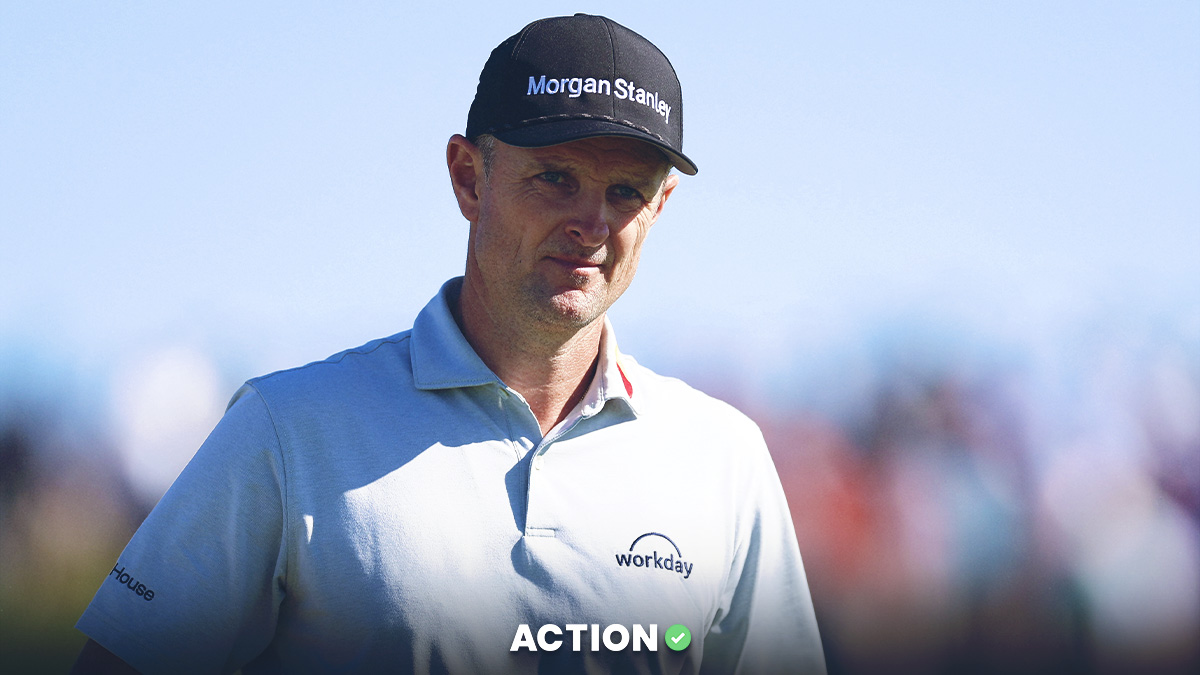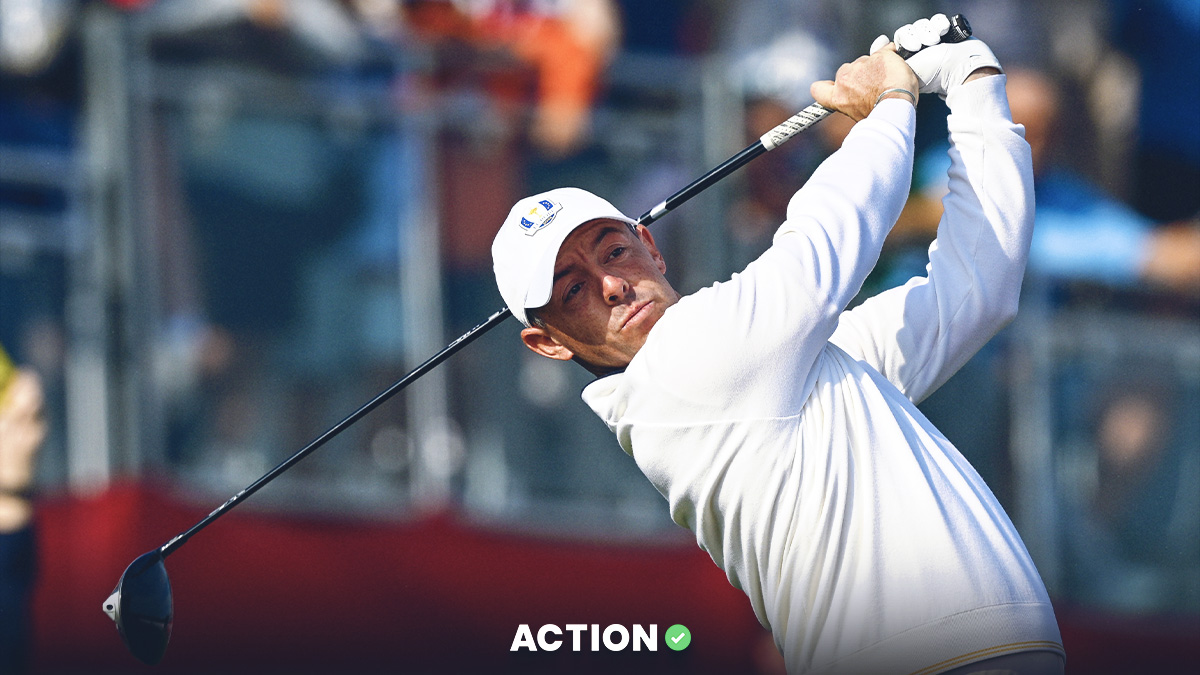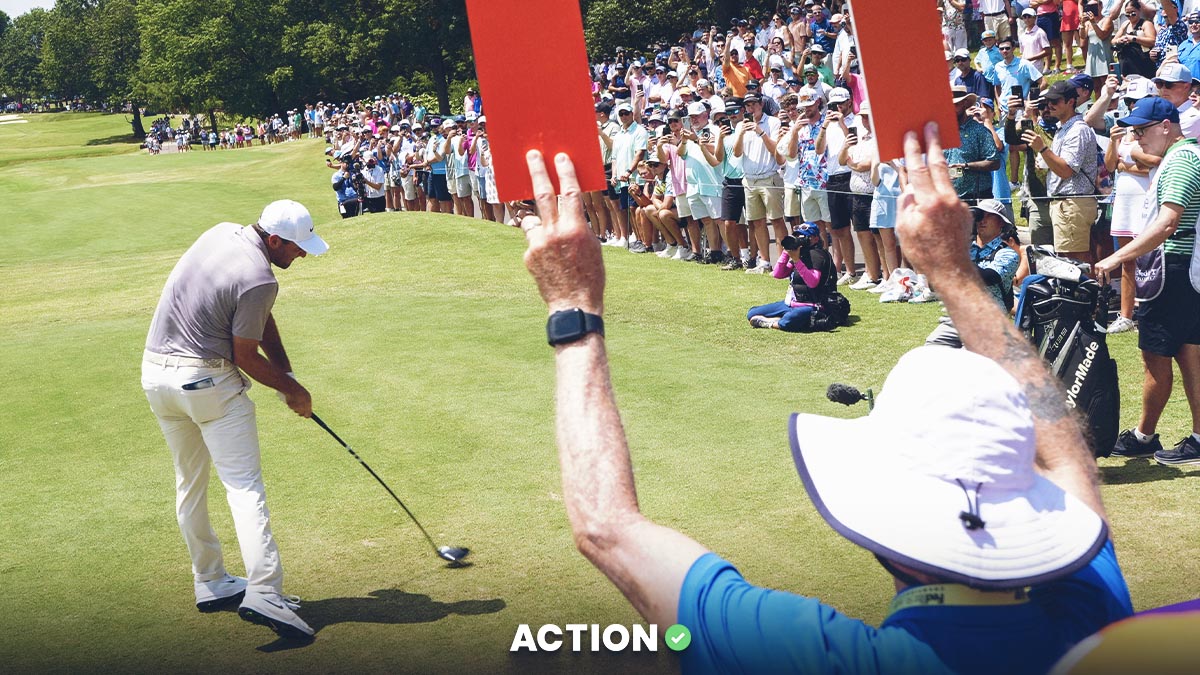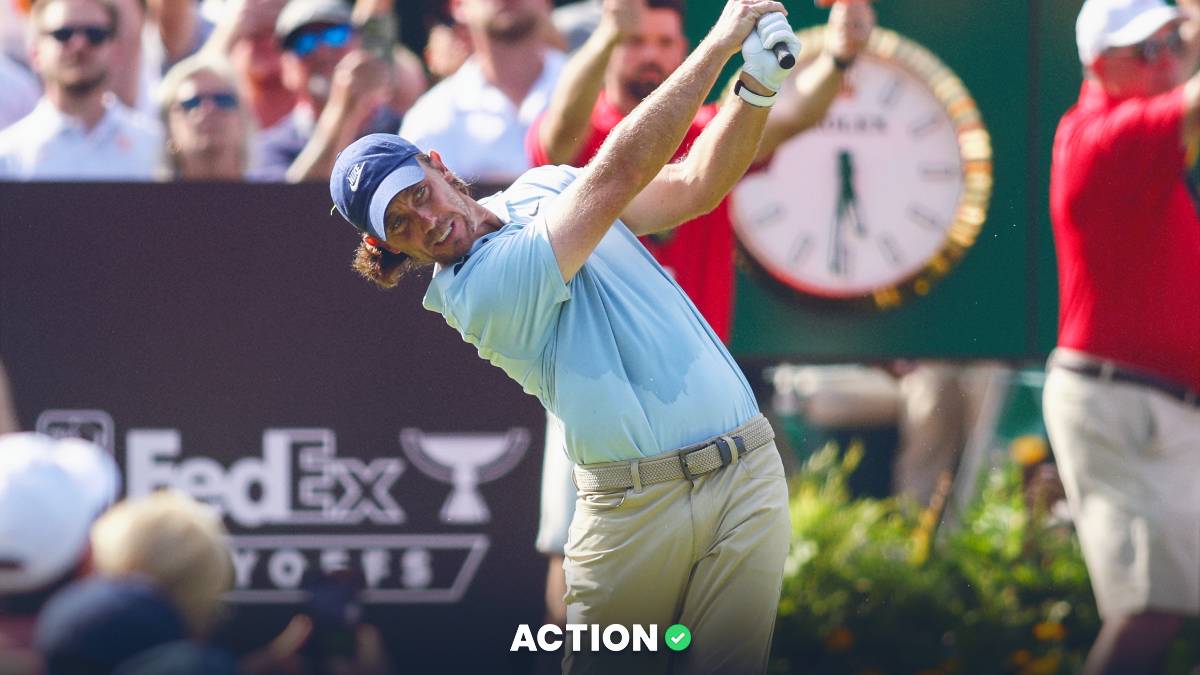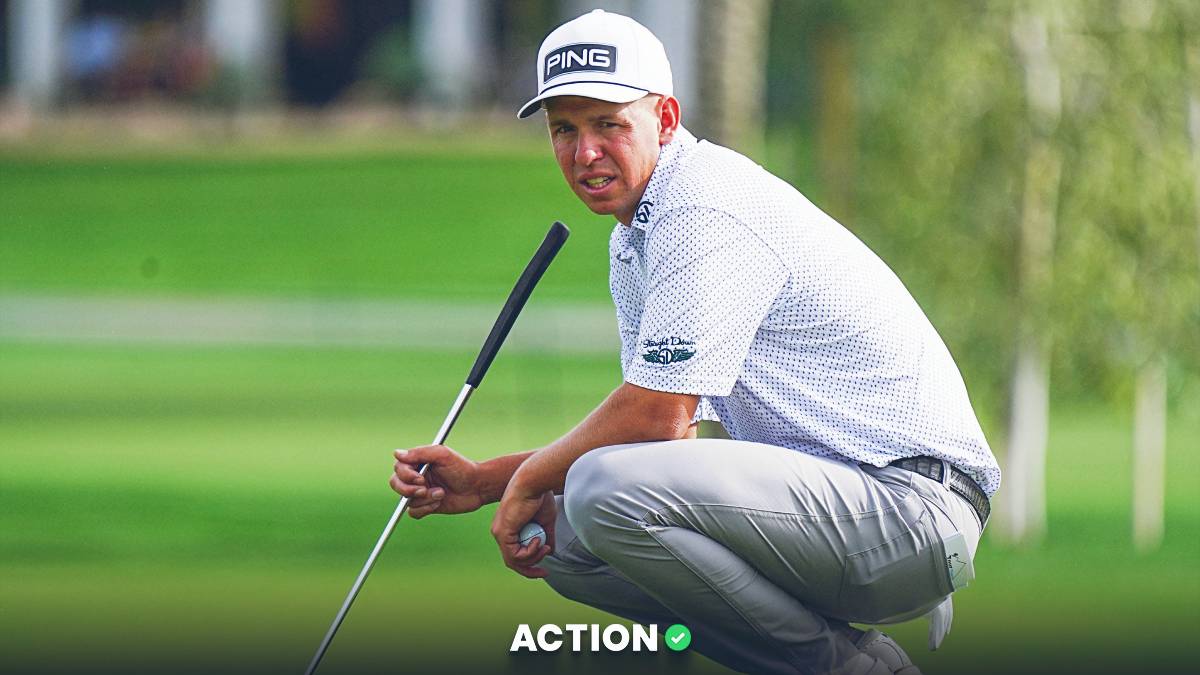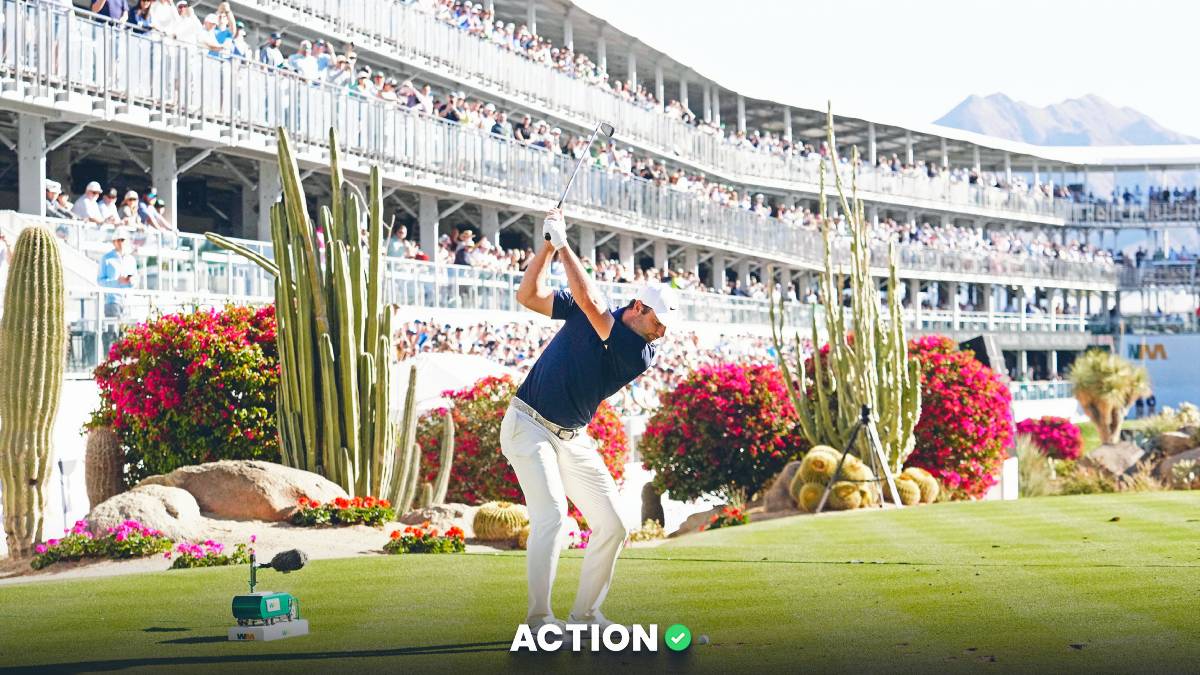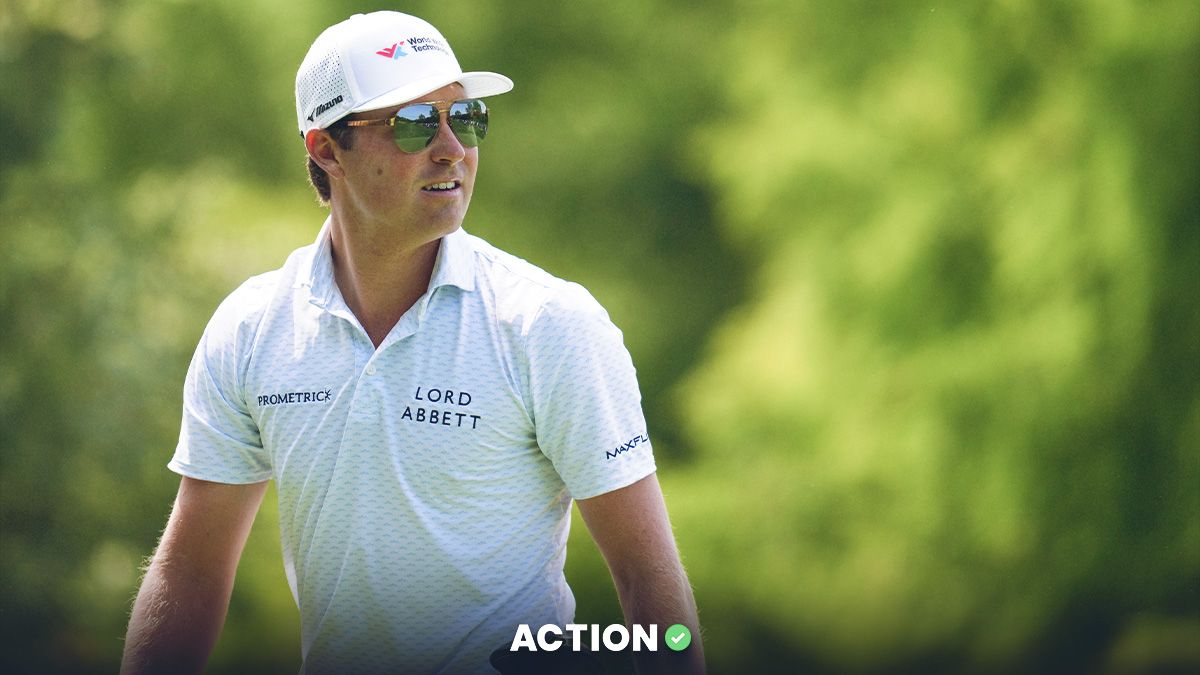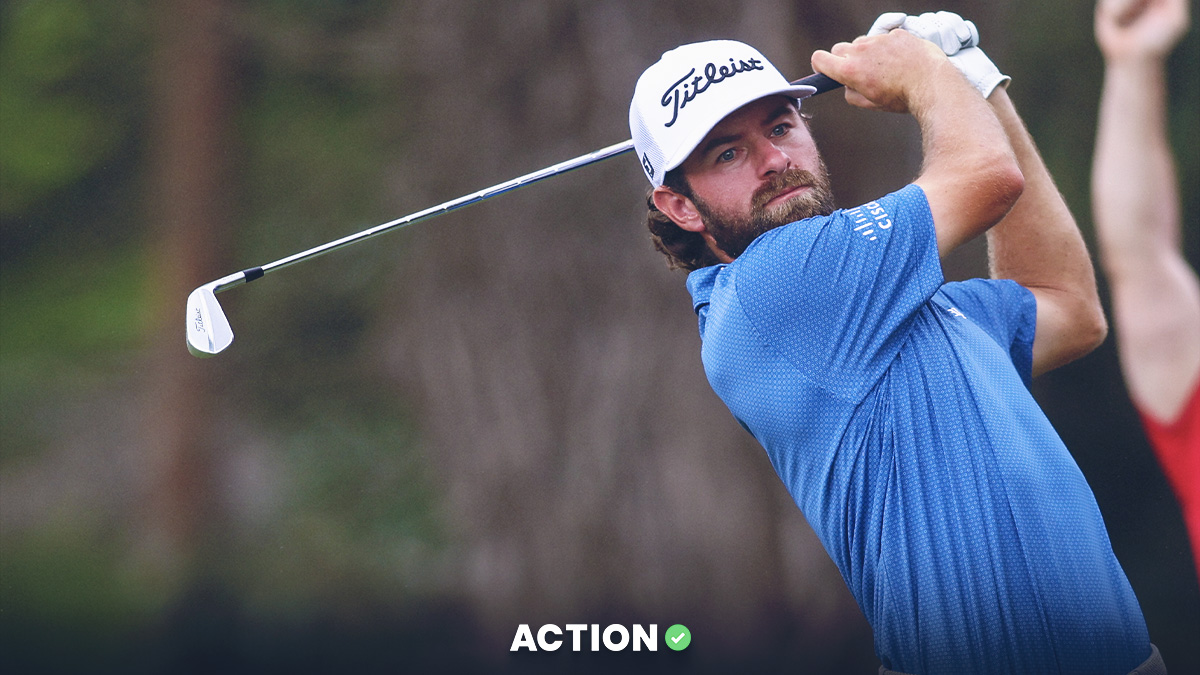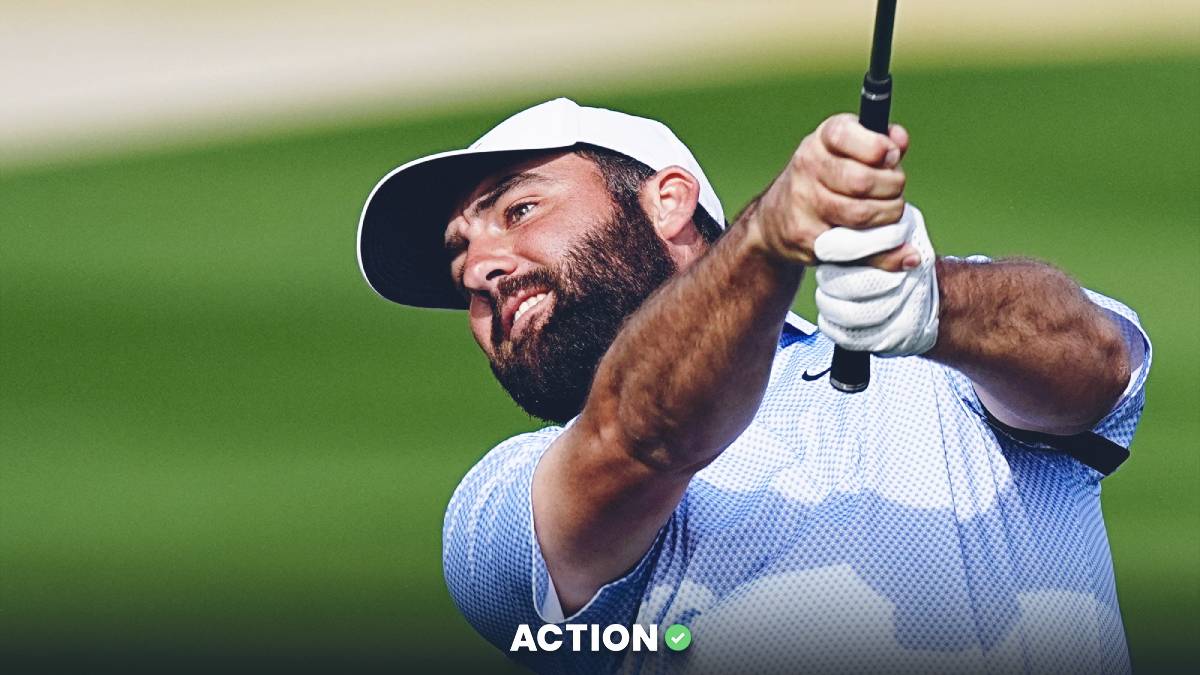- The U.S. looks to retain the Ryder Cup this week in Wisconsin from Europe.
- The Europeans have won seven of the last nine editions of this competition, although betting on that isn't where bettors will find value this week.
- Jason Sobel breaks down the Ryder Cup and delivers two picks for bettors below.
I’m so excited that it’s finally Ryder Cup week.
So excited that following a one-year delay, the usually biennial competition can be contested again — and with thousands of frenzied fans littering the gallery in all their patriotic glory.
So excited that two dozen of the world’s best players will compete with vigor for the honor of representing their country and displaying their pride rather than the almighty dollar.
And so excited that we can inexorably stop talking about each of the team’s candidates who weren’t chosen for these rosters and instead focus on those who are here.
Let’s delve a little bit into recent history, most of which already rings true for any American golf fan worth their weight in oversized Uncle Sam hats.
Europe is, of course, the defending champion, having trounced the U.S. by a score of 17 ½-10 ½ on home soil three years ago, the latest triumph in a progression of dominance that has seen Europe claim four of the last five titles and seven of the last nine.
Continually losing to an opposing side — and losing by a touchdown in the most recent matchup — is the type of defeat that can lead to any previous favorite quickly becoming an underdog in the betting marketplace, but the Ryder Cup is an event built on tradition and one of the grandest traditions is this: The U.S. team is more talented on paper, therefore the squad should continue to be favored prior to each edition of this competition.
This is a curious notion made even sillier by the fact that it’s not like Europe keeps losing to other teams, which explains its betting equity against the U.S. side. There’s only one Ryder Cup and (usually) only one team which wins it and that team is at plus-money. I know there are many bettors who will stop the conversation here and head straight to the window — and they might not be wrong about all of it.
The side with value, though, isn’t the side I prefer in this situation — eventually.
Winning Team: USA
I think the U.S. finds a little of that positive regression we so often speak about in other terms and wins the Ryder Cup this week.
I also don’t mind a pre-tournament wager on Europe.
No, I’m not speaking out of both sides of my mouth here, just trying to offer an edge in value.
The American side is currently listed as a big-time favorite, as short as -215 in many books. I hate that number and see no reason to play it before the competition starts. On the contrary, at +225, there’s some obvious value in taking Europe.
Allow me to explain.
This week’s competition will start with Friday morning’s foursomes session – an alternate shot format which often favors the European side. How often? Let’s take a look:
2018: Europe, 6-2
2016: USA, 5 ½-2 ½
2014: Europe, 7-1
2012: USA, 5-3
2010: Europe, 4 ½-3 ½
2008: USA, 4 ½-3 ½
2006: Europe, 5-3
2004: Europe, 6-2
2002: USA, 4 ½-3 ½
Since the turn of the century, Europe has held a 41-31 advantage in this format, but more importantly — considering many of the same players will be involved — in the past three instances of this competition, Europe has decimated its counterpart in foursomes by a total of 15 ½-8 ½.
Maybe there’s something about the team concept in this format. Maybe they played it more as developing junior players or it simply appeals more to them. In any case, these numbers can’t be considered a coincidence, not after both short-term and long-term dominance.
All of which means we shouldn’t be too surprised if the home team gets off to a sluggish start this Friday.
Now let’s examine the fourballs — or best-ball — format over the years:
2018: Tied, 4-4
2016: Tied, 4-4
2014: USA, 5-3
2012: USA, 5-3
2010: Europe, 7-3
2008: USA, 4 ½-3 ½
2006: Europe, 5-3
2004: Europe, 5-3
2002: Europe, 4 ½-3 ½
Europe still holds an advantage here, 39-35, since 2002, but in the past four editions of this competition, that advantage has largely been negated, as the U.S. owns a small 18-14 lead.
Is all of this enough to lead us to believe that Europe will once again be the better team in foursomes and the U.S. will take fourballs? Maybe not, but it should serve as evidentiary proof of what we’d already believe without knowing the numbers: That Europe thrives in the team game, while the U.S. is better in the more individual format.
Speaking of individual formats, here are the yearly records in singles sessions:
2018: Europe, 7 ½-4 ½
2016: USA, 7 ½-4 ½
2014: Europe, 6 ½-5 ½
2012: Europe, 8 ½-3 ½
2010: USA, 7-5
2008: USA, 7 ½-4 ½
2006: Europe, 8 ½-3 ½
2004: Europe, 7 ½-4 ½
2002: Europe, 7 ½-4 ½
This one is truly mind-blowing, as the “better team on paper” has lost in singles by a grand total of 60-48 during these years, including a 27-21 European advantage over the past four.
Within these results, though, remains a not-so-subtle clue: For as much as we debate and discuss pairings and chemistry and team play for weeks and months prior to every edition of the Ryder Cup, it comes down to the Sunday singles session, as the winning side has held the advantage in this format in eight of the last nine editions of the event.
All of which leads me to this conclusion: If you believe the U.S. is going to win this week — and I do, just by the narrowest of margins — there’s little value in playing them as a big pre-tourney favorite.
My advice is to watch the price carefully and seize on a bargain. Sometime after Saturday morning’s foursomes session, maybe early in that afternoon’s fourballs format, is when I’d wait to pounce on a number just north of even-money. If that happens, and if you jumped on Europe at +225 on equal units beforehand, it’ll guarantee some arbitrage, returning a profit by Sunday’s conclusion.
Individual Leading Scorer
USA: Xander Schauffele (+750)
Europe: Viktor Hovland (+700)
The first rule for choosing a leading points-getter for either team is picking a guy who’s going to play in at least four sessions, if not all five.
Three years ago, Francesco Molinari led all Europeans in points and Justin Thomas led the U.S. team. No surprise: Each of them competed in all five sessions.
Two years before that, it was Thomas Pieters and Patrick Reed. Again, each played all five.
Two years before that one? Justin Rose, who played all five, and Reed, who played four.
You get the point. For as much as you’d like to chase a juicy number next to the names of Harris English or Bernd Wiesberger, they’re each likely to play only three sessions, at most, essentially eliminating them from this wager.
So, which players could/should compete in all five sessions? Even the captains likely don’t know right now — this is dependent on performance and energy and momentum, of course — but we can at least infer a few on each side.
For the U.S., I believe Thomas/Jordan Spieth and Patrick Cantlay/Xander Schauffele are tandems built for all four team sessions. Again, if any of these players underperforms, that could change, but it wouldn’t surprise me if captain Steve Stricker has this plan entering the proceedings.
Of the four, Spieth’s game doesn’t necessarily fit Whistling Straits as much as the others. That doesn’t mean he can’t/won’t succeed, of course, but I prefer a guy who hits it a bit longer over the course of five sessions.
Thomas (+650) and Cantlay (+700) are the favorites, but it’s Schauffele’s name which continues to draw my eye. Already a decorated American after winning Olympic gold this summer, Schauffele owns both the game and the mindset to have a stellar week in what is, somehow, his Ryder Cup debut.
If he is indeed paired with Cantlay, who’s riding a heater of his own coming into this week, I like his chances to pick up at least four points and lead the team.
For Europe, it might be tougher to pinpoint a few of the five-session guys, but we have to believe that Jon Rahm, Rory McIlroy and Viktor Hovland are the first three, with Paul Casey and/or Sergio Garcia also playing ‘em all.
The world’s No. 1-ranked player, Rahm (+325) is the obvious choice here, but I’m not willing to dip into odds that short for him. McIlroy (+500) is also extremely tempting on a course which should suit him, but based on the last six months or so, we’re never quite sure exactly which Rory is going to show up on any given day.
That leaves Hovland – who, like Shauffele, is making his Ryder Cup debut, despite already ascending to the ranks of the game’s elite.
The Norwegian is the type who will have no fear in this format and can make birdies in bunches. My only small worry is his potential partner(s) for the first two days, but I think he’ll get an experienced teammate – maybe Casey or Garcia or Lee Westwood, all longtime stalwarts on this squad.
This should be a solid price for a player who, along with Rahm, should represent the next generation of great European Ryder Cup specialists, starting with this week.






